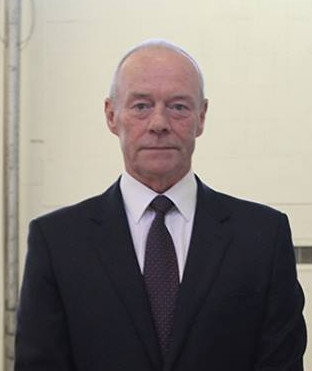About Tae Kwon-Do & the T.A.G.B
Taekwondo is an ancient form of unarmed combat practiced for many centuries in Korea. It became perfected in its present form by Major General Choi Hong Hi (1918 – 2002), and has been scientifically developed and modernised since its introduction to the world on 11th April 1955. Translated from Korean, Tae means to jump, kick or smash with the foot, Kwon means to punch, strike or destroy with the hand and Do is art, method or way. It is proven to be the most powerful system of self-defence ever devised. To the Korean people Taekwondo is more than a mere use of skilled movements. It also promotes a way of life with a strong sway towards the more philosophical side, particularly instilling a concept and spirit of self imposed discipline and an ideal of noble moral re-armament. In these days of violence and intimidation, which seem to plague our modern societies, Taekwondo enables the weak to possess a fine weapon to defend themselves and when strongly applied it can be very dangerous.
Founder of Tae Kwon Do Major General Choi Hong Hi 9th Degree Grand Master (1918 -2002)
Taekwondo was introduced to Great Britain in 1967 by Rhee Ki Ha.
HISTORY OF THE T.A.G.B
Taekwondo was introduced into the United Kingdom during 1967. It started with two groups then several groups were formed. A number of these were dominated by foreign nationals with financial and political interests. A group of the most senior British Taekwondo instructors eventually became so disillusioned with the situation that in 1983 they joined forces to form the Taekwondo Association of Great Britain. The T.A.G.B. contains some of the world’s top Taekwondo performers, with several world, European and British champions.
Since its inauguration, the T.A.G.B. has grown to become the largest and most successful Taekwondo practising organisation in Britain, with more than 25,000 members training in over 600 schools nationwide.
The T.A.G.B. is not just concerned with its own development. That is why it has played a leading role in the reunification of British Taekwondo into one body. In 1988, the T.A.G.B. helped found the British Taekwondo Council, this being the only governing body of Taekwondo to be recognised by the Sports Council.
The T.A.G.B. also helped found Taekwondo International, the object of which is to bring together Taekwondo practitioners throughout the World. Taekwondo International is non-political and it doesn’t attempt to dictate to member countries how they must run their affairs. Since its foundation in 1993, Taekwondo International has grown to become one of the biggest World Taekwondo bodies. Its World Championships are among the largest and best organised and it draws its participants from every continent.
BENEFITS OF TAE KWON-DO
For the newcomer to Tae Kwon-Do, there is a long and arduous path to the Black Belt. This is defined by a training syllabus which introduces new techniques at regular intervals, so you are constantly being encouraged to improve your skills.
At the end of a set period of practice time, you are assessed by the means of a grading examination, led by your area co-ordinator (for Central England South TAGB this would be Grand Master Paul Donnelly, 9th Degree Black Belt), to see whether your standards have reached a specified level. If they have, then you are rewarded with a coloured belt. The following belt system is used by the TAGB:
10th & 9th Kup : White Belt
8th & 7th Kup : Yellow Belt
6th & 5th Kup : Green Belt
4th & 3rd Kup : Blue Belt
2nd & 1st Kup : Red Belt
The Black Belt, which is made up of Dan Grades
This doesn’t mean, however, that considerations aren’t based on individual ability. The TAGB are completely non-discriminative and when coming up to gradings all physical and learning capabilities are taken into consideration.
There will be times when you feel you cannot master a technique. This is inevitable given the high demands made by Tae Kwon-Do on the abilities of each and every performer. The student who will eventually succeed is the one who keeps on trying; the one with enough motivation to push their self through all hardship and obstacles.
Courage is another essential ingredient for the Tae Kwon-Do student. There are those who are afraid of the prospect of destruction testing or free sparring. This is natural and moderates otherwise aggression, but too much fear can inhibit performance. You must first learn to defeat yourself before you ever expect to defeat others. This brings us to the tenets of Tae Kwon-Do:
• Courtesy: Always be polite to instructors, seniors and fellow students.
• Integrity: Always being honest with yourself and know what is right and what is wrong.
• Perseverance: Never stop trying to achieve a goal.
• Self-Control: Never lose your temper when you perform techniques against an opponent because this can be dangerous, Live, work and train within your capabilities.
• Indomitable Spirit: Showing courage and sticking to your guns even in the face of overwhelming odds.
During your Tae Kwon-Do journey there are many practices, techniques and skills you will learn. Both traditional and sparring styles. Our traditional styles consist of demonstrating and executing destructive defensive and attacking techniques in the form of line work and patterns, whereas the sparring style consists of skillfully and strategically beating an opponent in semi contact sparring.
Both styles take a lot of skill and practice with control and respect being of the upmost importance.
Tae Kwon-Do incorporates lots of self defence techniques that can also be put into practice if needs be, including; takedowns, locks, holds, grabs, breaking and general self-defence.
At the beginning of your Tae Kwon-Do journey, you will learn stances – how to hold your balance, distribute your weight and maintain your centre of gravity. This may seem tedious and obvious, but it will be the most important part of your training, as every technique you use here on out will have its effectiveness depend of this balance and stance.
From here your instructor will train you on being complete well-rounded Tae Kwon-Do practitioners – none of our instructors focus only on one aspect of training or the other. We ensure you can practice both traditional, realistic and sparring techniques to the same effectiveness.

Your Area Coordinator for Central England South T.A.G.B
Grand Master Paul Donnelly, 9th Degree Black Belt
